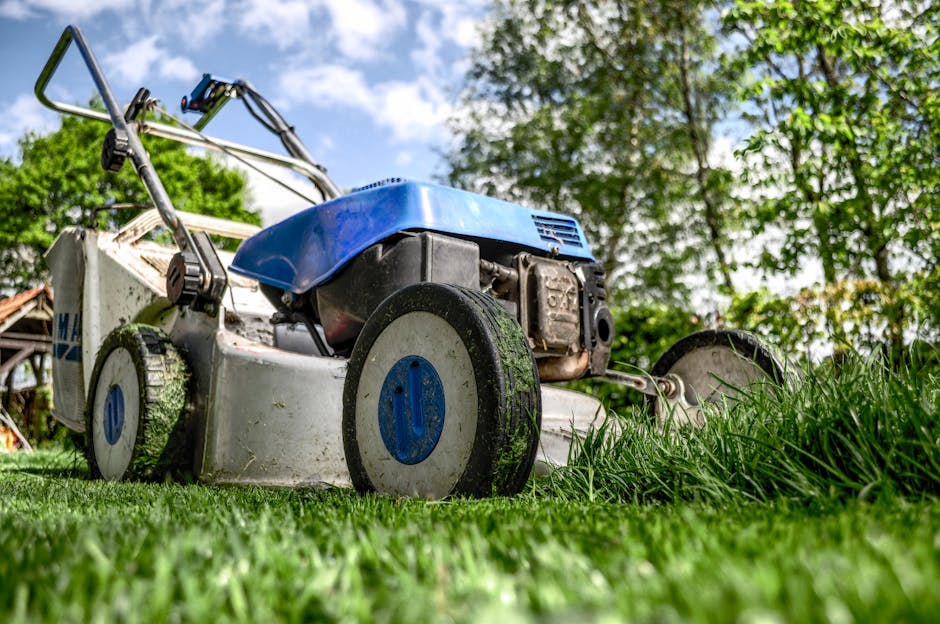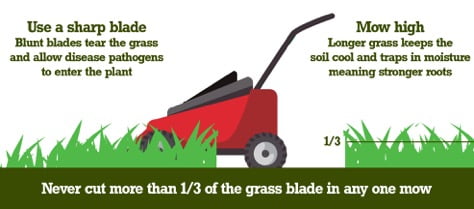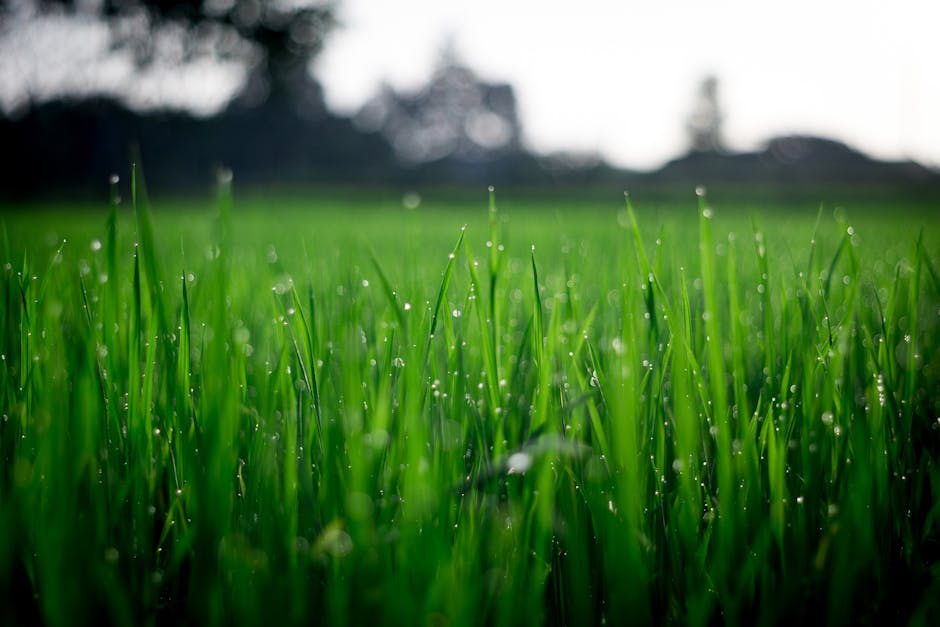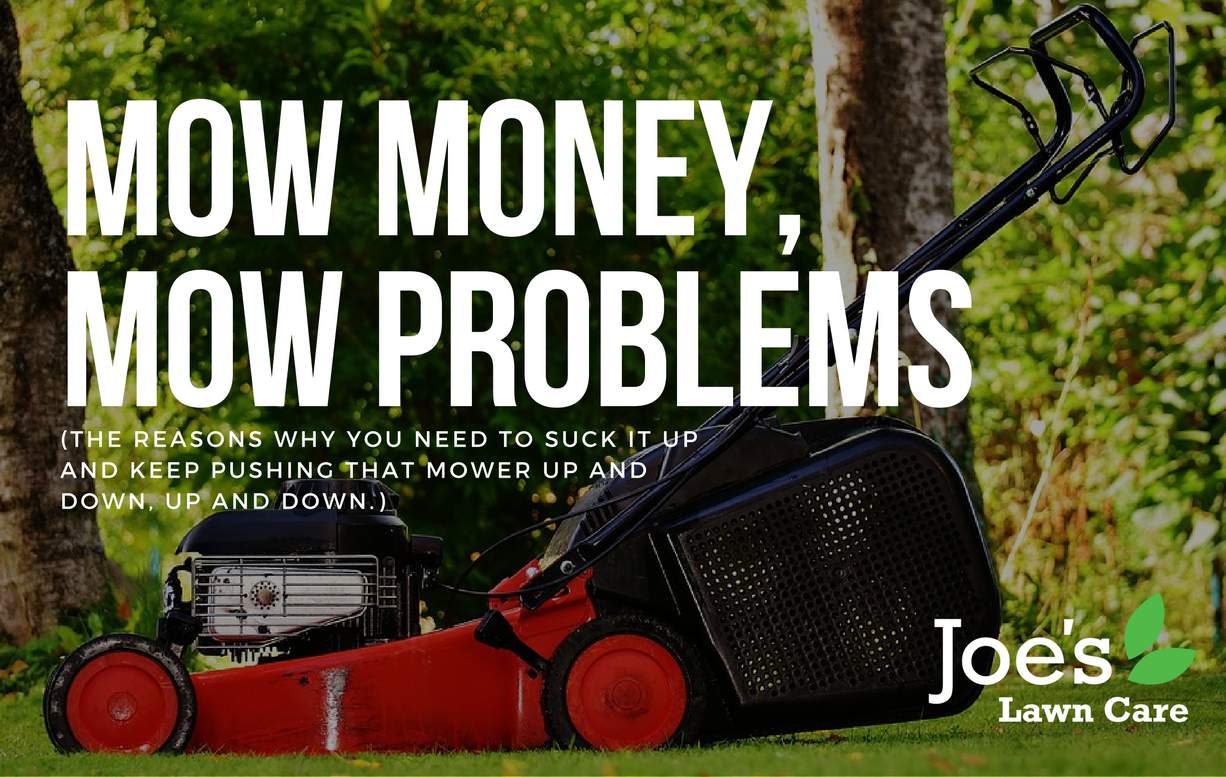Before we get underway with this week’s advice, we should probably thank The Notorious B.I.G. for inspiring us with the title of this week’s blog, the soundtrack to this week’s gardening duties and, most importantly, for inspiring the content: Grass.
No matter how you look at it – from the kitchen window, stood on your decking, while clawing moss and leaves out of your gutters or from a hot air balloon – your lawn is the most prominent part of your garden. It has to be. It is a lean, mean, statement-making machine and the focal point for everything else that is going on in your small slice of the great outdoors.
Yet, despite all this, homeowners and property renters the country over hate mowing their lawns. They. Hate. It. Or at least they wish a little more time could pass between each mowing session.
You know how it goes. The very prospect of cutting your grass means you have to get dressed (urgh!), rummage around in the boot of your car in search of your wellies, heading out to the shed, suddenly realising it’s freezing out because it’s almost winter, meaning you have to trek back to the house, replace your Hawaiian shirt and shorts for more “weather-appropriate” attire, head back to the shed, fiddle around with extension cables or choke-switches and then march behind your mower for an hour plus – up and down, up and down – just wishing you could still be in bed watching Sunday Brunch.
Yeah, it’s pretty obvious to see why so many people suffer from mower agitation. Couple that with the fact you are a busy professional that lives in a) a private setting, b) the middle of nowhere or c) a home where the trees have been planted with the sole purpose of keeping your nosey neighbours at bay, and the temptation to just let your lawn become a little rough around the edges can become too much to ignore. Just think about all that time, energy, money and stress you will be saving yourself.
But before you put your mower on eBay and invite your friends and family around for a ceremonial burning of your gardening gloves, just try and relax. Take a deep breath. Pop the kettle on. Rub your earlobes if you must. Just do whatever helps you chill out and then – and only then – read on. Why? Because we’re going to teach you all about why mowing is so important (and give you some other nifty bits of advice too).

Why Mowing Matters
It’s rare for anyone to push a mower around their garden because they find it fun and amusing. That simply doesn’t happen. You might enjoy it if you’ve just invested in a new mower, but the novelty will wear off halfway down your second length. That means the obvious answer must be aesthetics, right? Well, yeah, this is a big reason why we stick it out. But keeping a neat lawn with Wimbledon worthy stripes goes way beyond just making your friends jealous with photos of your garden on Instagram.
No. The real reason why you need to stay utterly faithful to your mower is regular mowing is the most effective way of keeping your lawn healthy. In the same way you can’t operate on Monday mornings without a couple of Berocca tablets, your lawn can’t survive without you pushing a mower over it. To put it bluntly, the longer you leave it between each mow the more you are damaging your lawn’s health in the long run, which means it will become harder to maintain as the years pass by. It really is as cliched as, “what you put in is what you get out”.
How Mowing Helps
To help you understand it a little bit more, mowing your lawn stimulates the grass to make it look as lush and healthy as Jon Bon Jovi’s hair circa 1984. Basically, in the same way you tend to your plants and shrubs – planting and pruning them so that they grow gloriously and put out loads of new growth – your lawn benefits from a bit of tender, love and care too. That is why you need to mow it on the regular and make sure you are applying the right mowing techniques. Ipso facto, mowing is an integral part of your overall lawn care strategy.

How Often Does One Need To Mow?
Good question. Once in the morning and once at night. No, we’re kidding. Unfortunately, there is no set-in-stone answer for this one because mowing is less about having a schedule or putting red crosses on your calendar and more about just doing it when your grass is ready. You can have some idea of when it is that time of the week-slash-month again but, ultimately, your lawn is going to dictate when it wants a little off the top. It’s a bit of a diva like that.
What About The Length?
The most crucial piece of advice we can give you on the mowing front is: always mow high. We’re talking about a minimum of two-and-a-half inches, or as close as the lever on your mower will let you get to this. If you have any issues with this, then you should send your letters of complaint to:
Madame Photosynthesis
Biology Lane
Science
PO Box: 45612
You see, at 2.5 inches, your grass will be getting all the TLC it needs from you whilst also enjoying an optimal surface area for photosynthesis to occur. More photosynthesis means better growth, improved roots and a much happier plant. The other benefit of mowing high is it makes it much harder for weeds to burst through and ruin your life. That’s because the grass will adapt, start to fill in the gaps, become denser, and push out any weeds they may try their luck. Cool, huh?

What Are The Benefits Of A Long(ish) Lawn
Simple. Aside from regular mowing, your other lawn care chores will become way easier to manage. Your grass will be able to withstand infrequent watering better and ride out periods of droughts more easily. This is because your longer grass will have saved up more moisture than usual. That doesn’t mean you can completely neglect your watering duties and tell the local council you no longer require access to the mains, but it does mean you can relax a little more. The other obvious benefit is to do with looks: your grass will become a much lusher shade of green, while your whole lawn will become a lot more consistent. Win.
And there we have it; all the reasons you could possibly need to make amends with your mower and, who knows, maybe even reignite that spark of mutual love.





